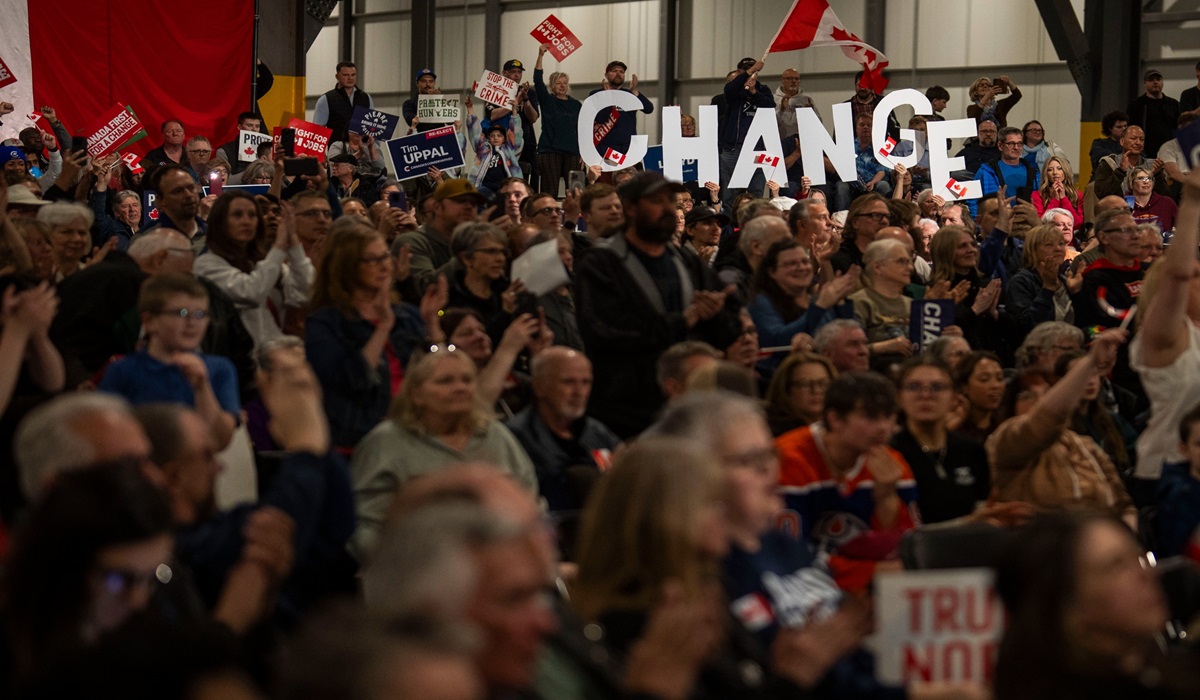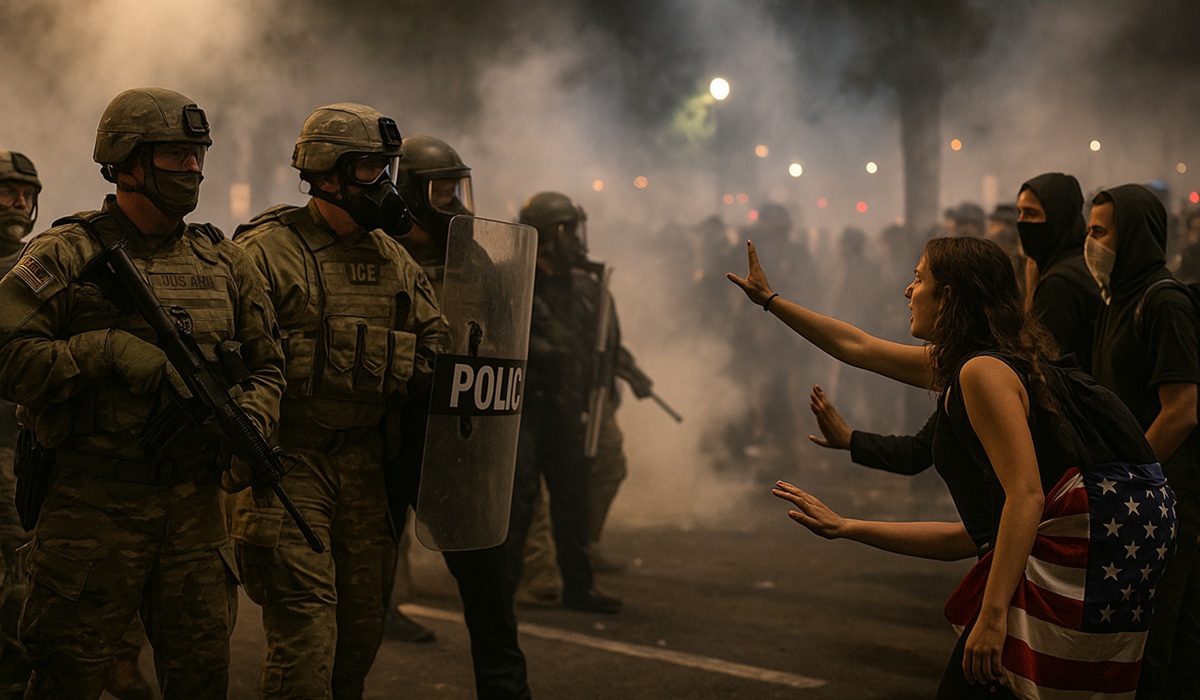15,000 Strong and Harper-Backed: Poilievre’s Edmonton Rally Signals a Political Reckoning
- TDS News
- Elections
- Trending News
- April 8, 2025

What unfolded just south of Edmonton yesterday wasn’t a typical political rally—it was a thunderclap signaling the rise of a full-blown movement. Over 15,000 people—yes, twelve thousand—showed up to hear Conservative Party leader Pierre Poilievre deliver a message that cut through the noise of traditional politics like a knife. This wasn’t just a strong turnout—it was historic. For a federal rally in Canada, these numbers are almost unheard of. And it wasn’t just the crowd size making headlines. Former Prime Minister Stephen Harper’s full-throated endorsement added fuel to an already roaring fire, confirming what many have started to suspect: the Conservative base is no longer quietly simmering—it’s boiling over.
This rally, on the outskirts of Edmonton, marks a defining moment not only for Poilievre but for Canadian politics at large. There’s a palpable shift happening—one that polling data, which is often skewed by narrow sampling and subtle biases, hasn’t fully captured. Because what we’re seeing now isn’t just support; it’s a groundswell. It’s not coming from the pundit class or the cocktail circuit in Ottawa—it’s coming from ordinary Canadians who are fed up, fired up, and fully engaged.
Stephen Harper’s appearance was more than symbolic. It was strategic. His presence legitimized the movement in a way that even Poilievre’s most vocal supporters couldn’t have manufactured. It was a clear signal to moderates and conservatives across the country: this isn’t just another right-wing populist blip—this is the real deal. Harper, the architect of the modern Conservative coalition, wouldn’t stake his legacy on a flash-in-the-pan. His endorsement was a calculated stamp of approval, and it landed with weight.
At some point, the selective polling and statistical tap dancing used to downplay Poilievre’s momentum will have to confront reality. Or maybe not—because polling is, at its core, subjective. It’s shaped by who asks the questions, who answers them, and how much faith the public still puts in a system that has repeatedly underestimated voter discontent. But rallies like this don’t lie. Twelve thousand people don’t show up by accident. Movements like this aren’t engineered—they erupt.
The so-called “Blue Wave” is no longer theoretical. It has feet on the ground, voices in the air, and now, the public backing of a former prime minister. Whether Poilievre’s critics want to admit it or not, something real is happening. It’s visible. It’s loud. And it’s growing.
This isn’t just a moment—it’s momentum. And if it keeps building at this pace, no amount of polling spin or media framing will be able to explain it away. The country is shifting. The establishment should start paying attention—before the ground completely disappears beneath them.








